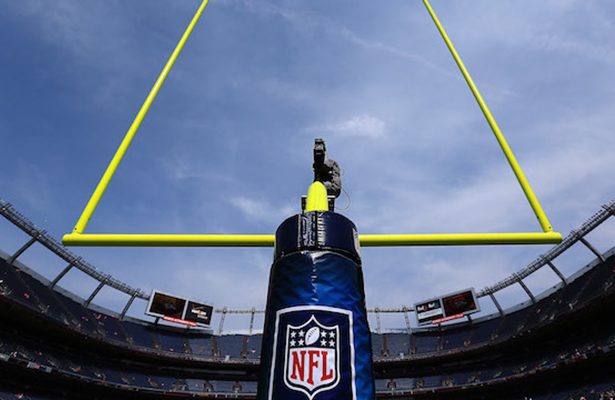Are You Ready For Some Football: Booth Research Examines Timing of NFL Contracts

The National Football League is a huge money making business. With the regular season kicking off in just a few days, new research from the Booth School of Business shows that timing is of the essence with players enter contract negotiations.
“This paper is about a seemingly very small part of the NFL contracting — when do you get paid in the off-season?” Gregor Matvos, an associate professor of finance at Chicago Booth, said.
In his paper, “Renegotiation Design: Evidence from National Football League Bonuses,” which was published in May in the Journal of Law and Economics, Matvos looked at 4,220 contracts signed in the NFL from 1994 to 2003, focusing on the 1,428 contracts in that span that were two years or longer, as well as corresponding player performance data.
“It turns out it matters hugely — the timing of these payments, how they’re staggered,” Matvos says. “In a lot of markets we don’t quite understand how important timing is.”
Unlike other professional sports, no NFL contracts are guaranteed. With no safeguards in place, teams could delay renegotiation with a player until late in the offseason, giving teams an upper hand because there would be few if any openings elsewhere and the player would have little option but to take whatever the team offered.
“In the NFL we can measure dollars. If you slightly mis-structure your contract on the timing, that could potentially cost you hundreds of thousands of dollars.”
Matvos says NFL contracts are interesting because teams and players have to “buy” trade-offs — through signing bonuses, roster bonuses and salary.
“What does a nonguaranteed contract mean for a player? It means that if I, the team, want to keep you, I have to pay you this money (roster bonus), but if I don’t want to keep you I can just terminate the contract,” he says. “So in some ways as a team, I have an option on your play. But of course there is a price for this contract ex ante. … Just because a player doesn’t have a roster bonus doesn’t mean they’re worse off. Hopefully they got compensated appropriately for it, with a bigger signing bonus or a bigger salary. It’s stunning that such a little difference could matter so much.”
